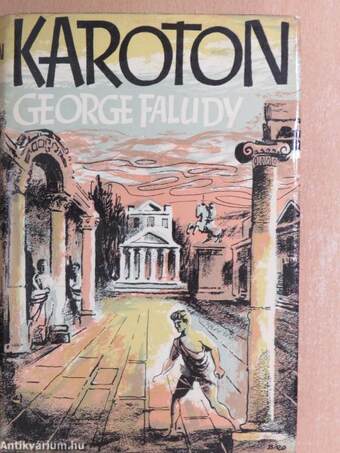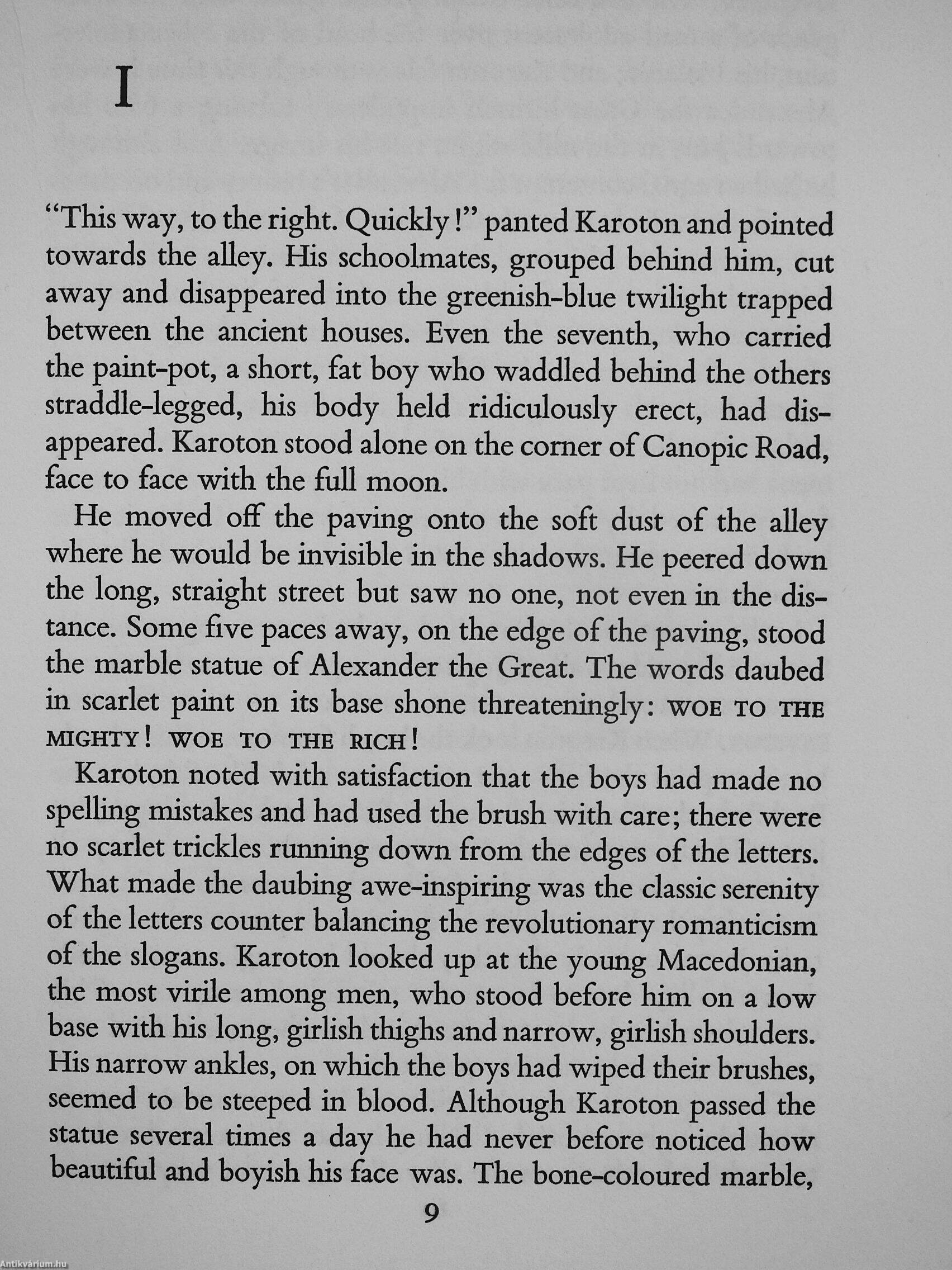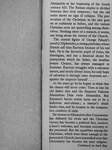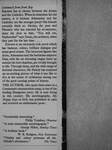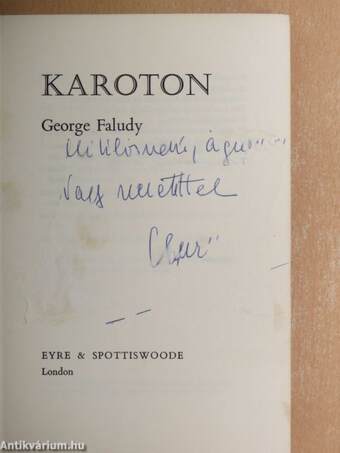1.068.031
kiadvánnyal nyújtjuk Magyarország legnagyobb antikvár könyv-kínálatát

VISSZA
A TETEJÉRE
JAVASLATOKÉszre-
vételek
Karoton
| Kiadó: | Eyre & Spottiswoode (Publishers) Ltd. |
|---|---|
| Kiadás helye: | London |
| Kiadás éve: | |
| Kötés típusa: | Varrott keménykötés |
| Oldalszám: | 303 oldal |
| Sorozatcím: | |
| Kötetszám: | |
| Nyelv: | Angol |
| Méret: | 21 cm x 14 cm |
| ISBN: | |
naponta értesítjük a beérkező friss
kiadványokról
naponta értesítjük a beérkező friss
kiadványokról
Előszó
TovábbFülszöveg
Alexandria at the beginning of the fourth century AD. The Roman empire is divided between five rival emperors; but the old order shows no sign of collapse. The persecution of the Christians in the east goes on as ruthlessly as before, and the various Christian sects are quarrelling among themselves. Nothing short of a miracle, it seems, can bring about the victory of the Church. The central figure of George Faludy's I novel is Niphetodes, a young patrician, whose friends call him Karoton because of his red hair. He is the favourite pupil of Arius, the theologian, and has a fanatical desire for martyrdom which his father, the heathen lawyer Cleanor, has always managed to frustrate. Karoton struggles with a sensuous nature, and nearly always loses; his only hope of salvation is through some desperate act -against the emperor himself
As the years go by he begins to think that his chance will never come. Then at last his old father dies and the Emperor Valerius Maximinus Daja visits... Tovább
Fülszöveg
Alexandria at the beginning of the fourth century AD. The Roman empire is divided between five rival emperors; but the old order shows no sign of collapse. The persecution of the Christians in the east goes on as ruthlessly as before, and the various Christian sects are quarrelling among themselves. Nothing short of a miracle, it seems, can bring about the victory of the Church. The central figure of George Faludy's I novel is Niphetodes, a young patrician, whose friends call him Karoton because of his red hair. He is the favourite pupil of Arius, the theologian, and has a fanatical desire for martyrdom which his father, the heathen lawyer Cleanor, has always managed to frustrate. Karoton struggles with a sensuous nature, and nearly always loses; his only hope of salvation is through some desperate act -against the emperor himself
As the years go by he begins to think that his chance will never come. Then at last his old father dies and the Emperor Valerius Maximinus Daja visits Alexandria. But Karoton's heroic action turns out to be a ludicrous anti-climax; a martyr's death eludes him, and he escapes to the comparative comforts of exile.
He retmns to Alexandria after Constantine has defeated his rivals and the Christian victory has become a political fact, receives a hero's welcome, and becomes secretary to the proconsul. But the squabbles among the Christians, which were bitter enough in the persecuted Church, have intensified now that Christianity has become the state religion.
Continued on back flap
Continued from front flap Karoton has to choose between the Arians and the Catholics. When he abandons his old master, is it because Athanasius and his Catholics are the stronger party? His friends certainly think so. Alexias, the poet and, Platonist who has married his ex-mistress, shuts his door to him. "You will rot, Niphetodes!" says Zonas, the architect, when they part for the last time
Karoton is an extremely rich novel which has humour, colour, brilliant dialogue and many good scenes. The historical figiires like Arius, Athanasius and the barbarian emperor Daja, with his six shivering virgins lined up outside the bed-chamber, are vividly brought to life. Through them, and the wide range of fictional characters, Mr Faludy has conjured up an exciting picture of what it was like to live at the centre of civilisation during one of the great turning points of history. THE AUTHOR, who spent three years in a Communist concentration camp, is one of the leading Hungarian poets. He is now living in this country. His autobiography. My Happy Days in Hell, was published in 1962 and received an enthusiastic press:
"Irresistably interesting."
Philip Toynbee, Observer "A truly memorable autobiography."
George Mikes, Sunday Times "A briUiant book."
W. R. Rodgers, New Statesman "Vitality and colour permeate all Mr. Faludy's adventures." The Times Vissza
Témakörök
- Idegennyelv > Idegennyelvű könyvek > Angol > Szépirodalom > Regény, novella, elbeszélés
- Szépirodalom > Regény, novella, elbeszélés > Tartalom szerint > Kalandregények
- Szépirodalom > Regény, novella, elbeszélés > Tartalom szerint > Erotikus regények
- Szépirodalom > Regény, novella, elbeszélés > Tartalom szerint > Szatirikus történetek
- Szépirodalom > Regény, novella, elbeszélés > Az író származása szerint > Magyarország
- Szépirodalom > Regény, novella, elbeszélés > Tartalom szerint > Vallásos, bibliai regények
- Szépirodalom > Regény, novella, elbeszélés > Irodalmi díjas szerzők > Kossuth-díjasok
- Erotika > Szépirodalom > Regény, novella, elbeszélés
- Idegennyelv > Idegennyelvű könyvek > Angol
Megvásárolható példányok
Nincs megvásárolható példány
A könyv összes megrendelhető példánya elfogyott. Ha kívánja, előjegyezheti a könyvet, és amint a könyv egy újabb példánya elérhető lesz, értesítjük.



